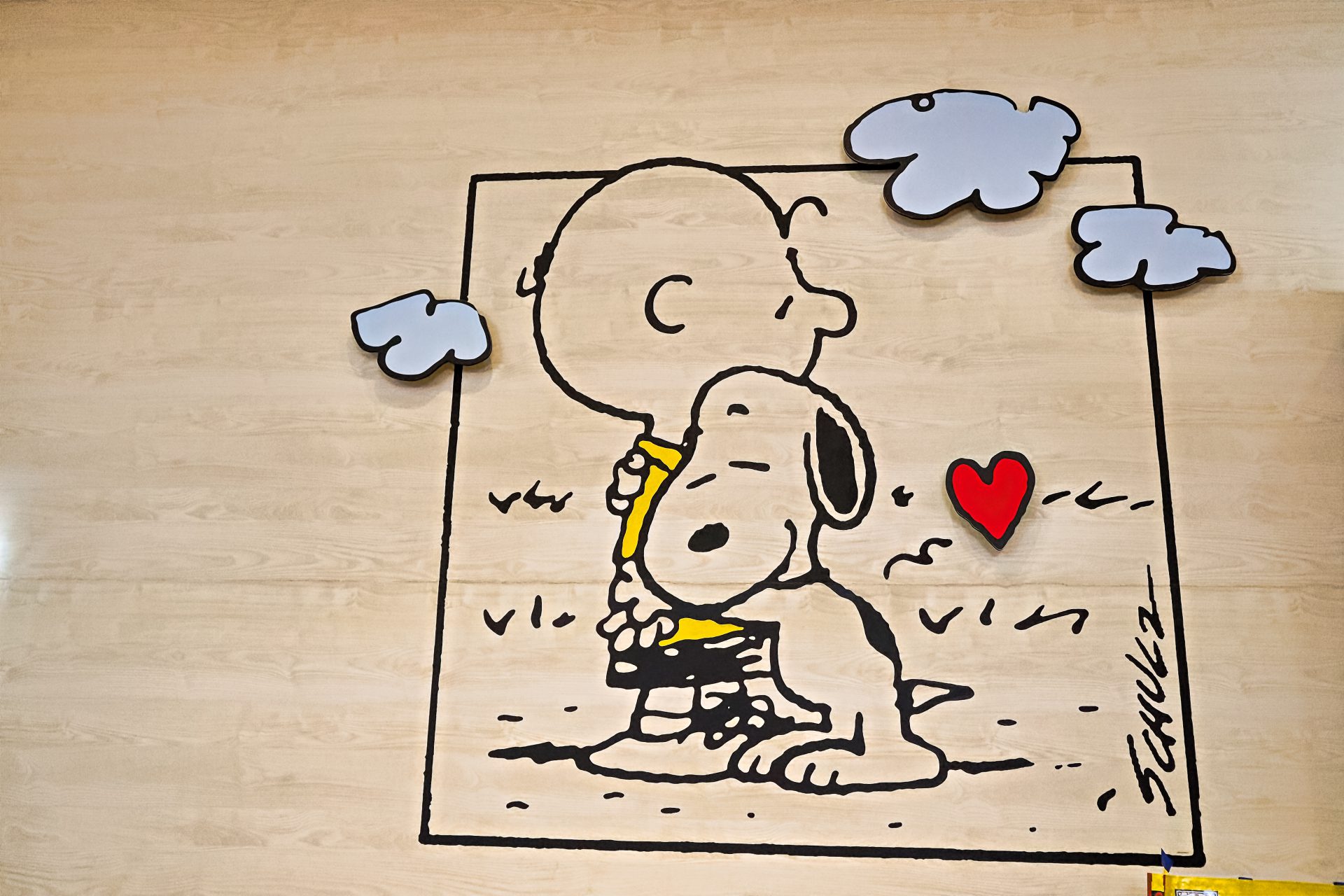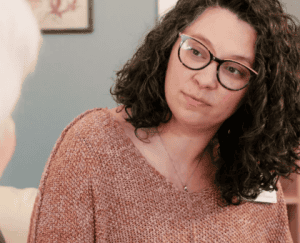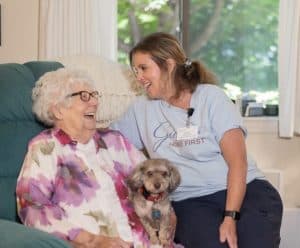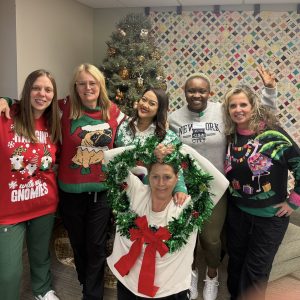I love Charlie Brown and the way he sighs “Good Grief.” Now that I have served as a hospice nurse, I like what Charlie says even more because it is good to know there is such a thing as “Good Grief.” It is also a good reminder that I can sigh the phrase, just like Charlie Brown.
In the tapestry of life, grief is an inevitable thread woven into the fabric of our experiences. As we share our lives with each other, we often form deep connections and share rich histories, and the concept of “good grief” becomes especially poignant. Good grief is not about minimizing loss but acknowledging the beauty of the relationships and memories that preceded it. It is also about allowing ourselves to go through the many facets of grief and be self-aware enough to move through those feelings.
As we traverse the complex landscape of life, loss becomes a companion. However, in acknowledging grief, we find an opportunity for healing and growth. Communities foster a culture that celebrates good grief—a process that allows individuals to honor the past while embracing the present.
Good grief is a testament to the resilience of the human spirit, encouraging each of us to share our stories, reminisce about cherished moments, and support one another through the inevitable transitions. By fostering an environment that values the emotional journey, communities empower residents to find solace in shared experiences.
In recognizing that grief is not the end, but a continuation of the love and connections formed over a lifetime, we can find strength in vulnerability. Together, let’s embark on a journey of good grief, where the pain of loss is transformed into a celebration of a life well-lived, fostering a sense of community that transcends the challenges of aging.
Here are some possible communities as a resource for processing your grief:
Online
- GriefShare: A GriefShare support group is a safe, welcoming place where people understand the difficult emotions of grief. Through this 13-week group, you’ll discover what to expect in the days ahead and what’s “normal” in grief. Since there are no neat, orderly stages of grief, you’ll learn helpful ways of coping with grief, in all its unpredictability—and gain solid support each step of the way. GreifShare Communities Near Us.
- AARP is offering an online Zoom event on Wednesday December 13 from 11:30 am to 1:00 pm Eastern Time called “Grief & the Holidays.” – you can learn more by clicking here.
- Here’s a wonderful article by AARP on grief and the Holidays and these online resources for men who have lost their spouse.
In Person
Givens Estates and Givens Highland Farms each have a Department of Spiritual Care which are comprised of Rev. Brenda Lewis (Director) and Rev. Kelli Mullinix (Associate) for the Estates (and our Givens Affordable Living Communities – Gerber Park in South Asheville and Great Laurels in Lake Junaluska), and Rev. Hunter Preston (Director) for Highland Farms. Each of our Chaplains provide spiritual care for our residents experiencing grief and loss in a variety of ways. Our Chaplains will provide presence and comfort to residents and their families who are approaching the end of their earthly journeys. We provide guidance in the acute stage of grief as families navigate the complexities of “to-do’s” while simultaneously encountering all the other emotions which come with significant loss. We assist in the planning of memorial services and provide as much leadership as the family wishes in officiating these services. In other words, we are here for you and your family as encounter the whirlwind of loss. Our Chaplains also provide ongoing grief care through visits, phone calls and even facilitate support groups where others who are experiencing loss may come together to process thoughts, feelings, struggles to the end that grieving individuals incorporate their loss into their “story.”
A few pointers which might help move the overwhelming sea of emotions into the arena of “Good Grief” during the holidays include:
- Make time for yourself as needed, while at the same time guarding yourself against the pitfall of self-isolation. Holidays are busy and often social activities or visiting family can be a bit overwhelming. Family and friends often wish to provide joyful distractions as a means of love and care, while the unordered waves of less-than-joyful emotions may create an awkward dissonance. Excuse yourself from the crowd and take a walk, or meditate, or nap, or whatever provides you the opportunity to acknowledge what’s happening inside your heart and head. Take several deep breaths and honor the simple fact that we are wonderfully complex beings and that all our emotions are reminders that we are alive.
- Pray. Even if you’re not “religious”, prayer is a way of honestly speaking our heart and minds in a way that releases much of the anxiety created by a need to manage our grief. The goal of this spiritual release is to encounter what is described in Christian terms as, “the peace which passes understanding.”
- Share your favorite stories and memories of your loved one with others. Welcome the reminiscing by family and friends. The love and joy present in those stories are among the living legacies which remind us that love never ends.
- Try something new. If family holiday rituals are more than you can handle honestly (sometimes we force a smile and swallow our emotions for the sake of those around us), perhaps going someplace new or trying a new activity provides a less stressful environment.
- Find a way to serve others. Helping in a soup kitchen, making baked goods to give away, lending a hand to a neighbor in need … all forms of altruism (focusing on the needs of others) generate chemical responses inside of us which quite literally make us feel better.
Peace be with you during these holidays. And know that when your spirit needs some care and attention, our Chaplains would be honored to walk your grief journey with you.
Rev. Brenda Lewis [email protected]
Rev. Kelli Mullinix [email protected]
and Rev. Hunter Preston [email protected]





